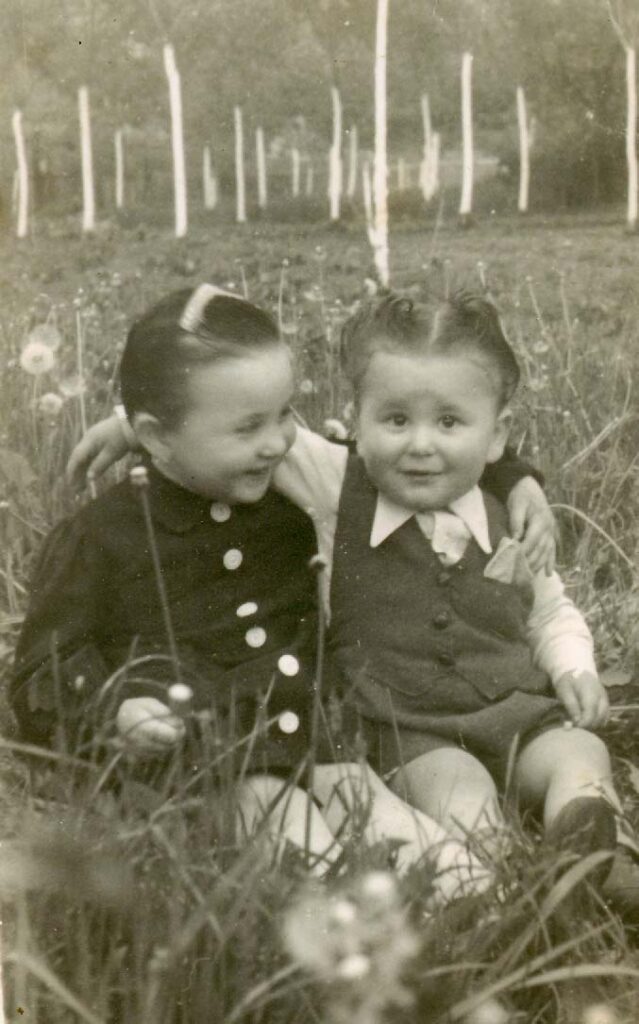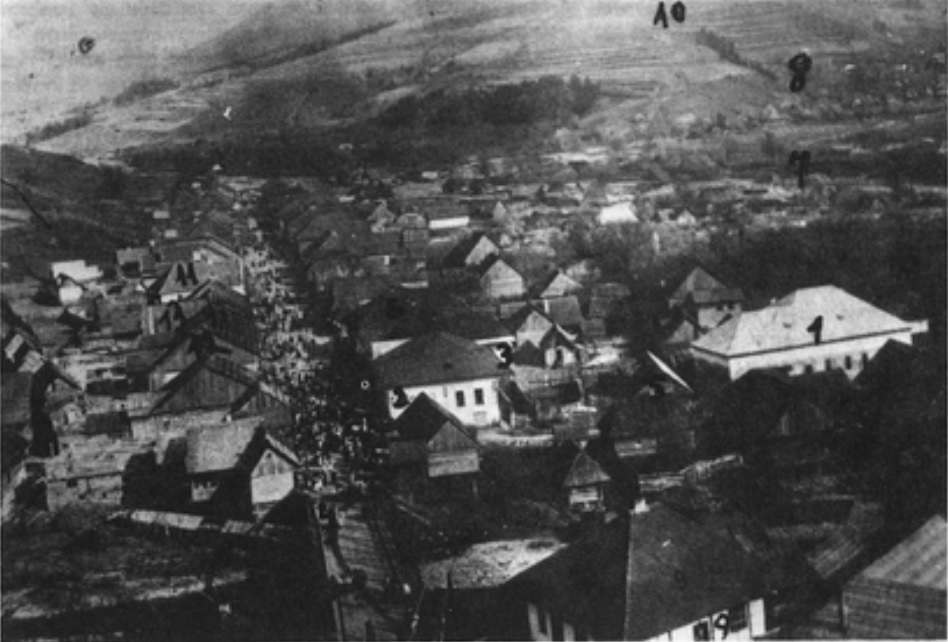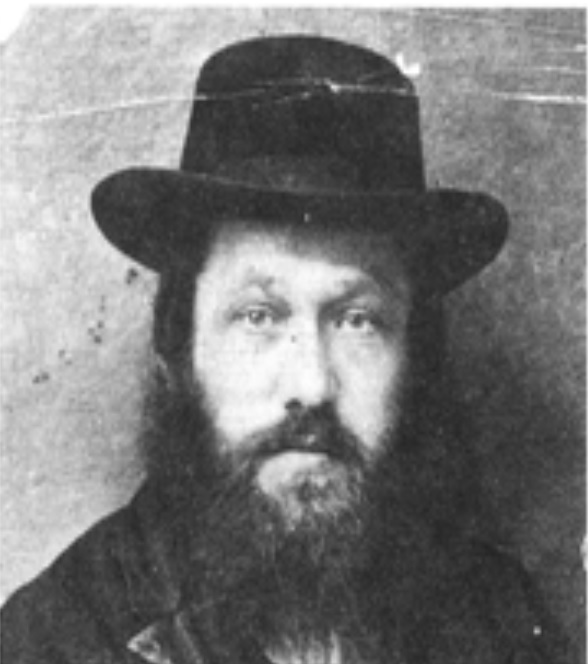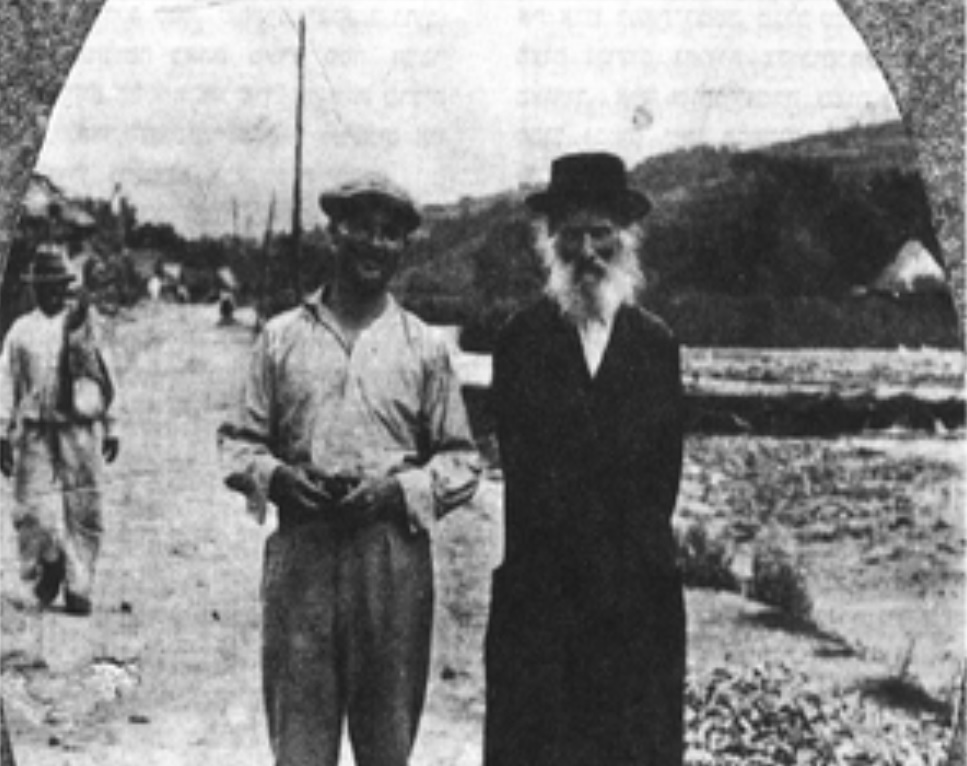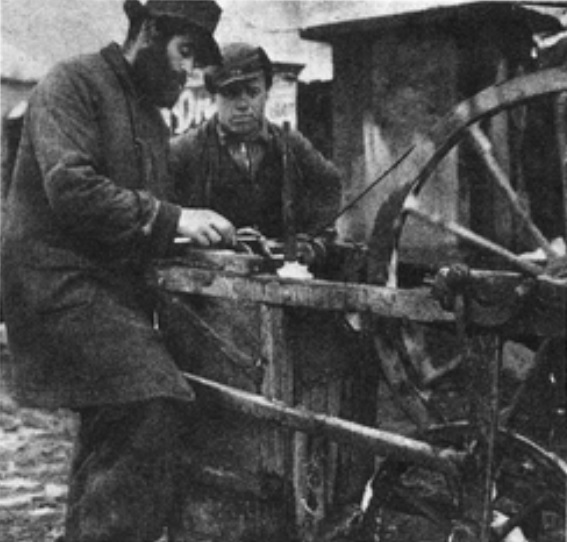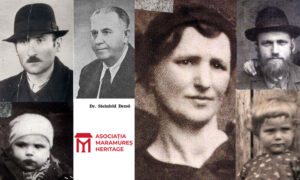Comunitatea evreiască din Borșa, Maramureș
🇷🇴/🇭🇺/🏴 The Jewish community from Borșa, Maramureș county, Romania
🇷🇴 Primii evrei au sosit din Galiția pe la mijlocul secolului 18. În anul 1760 exista deja un minian, iar la începutul secolului 19 trăiau în Borșa aproximativ 250 de evrei.
Numărul lor a crescut constant. În anul 1890 trăiau 1432 de evrei, în anul 1920 2991 de persoane au spus că sunt evrei, iar în anul 1941 numărul lor era de 2409 suflete. În procente asta însemna că evreii reprezentau 20% din populația orașului Borșa.
Prima sinagogă au construit-o în 1800, iar a doua în 1840. Case de rugăciuni mai mici era mai multe, iar școala Talmud-Tora s-a înființat în 1870.
Majoritatea evreilor din Borșa erau adepți ai Curții Hasidice Kosow. Primul rabin al comunității s-a numit Eizik. În 1855 rabin al comunității ajunge Jakow Cvi Waldmann. Acesta a rămas în funcție până în 1883.
Ben Cion Fisch din Borșa, un om înstărit, a fost un mare susținător al sionismului și a cultivării pământurilor din Ereț Israel. Acesta a fost deportat și ucis în Auschwitz.
Un alt mare sionist din Borșa a fost și David Moskovits. Acesta a mers în Israel și a cumpărat mai multe terenuri lângă orașul Tiberias pentru evreii din Transilvania.
Majoritatea evreilor din Borșa era comercianți, proprietari de păduri sau dețineau diferite exploatări forestiere. În perioada interbelică în Borșa existau 12 sinagogi și case de rugăciuni, trei băi rituale și trei cimitire.
Meir Pollak, un evreu din Borșa a fondat stațiunea balneară care s-a bucurat de renume în toată țara.
Ultimul rabin al comunității a fost Mendel Hager. Cei aproape 2500 de evrei din Borșa au fost deportați din ghetoul din Vișeu de Sus. Marea majoritate a fost ucisă în lagărele de exterminare.
După război s-a încercat reorganizarea comunității, dar după anul 1950 aproape toți cei 395 de evrei au emigrat.
Azi, în Borșa, nu mai trăiește nici un evreu.
🇭🇺 Az első zsidók a 18. század közepe táján érkeztek Galiciából. 1760-ban a közösségnek már volt miniánja, 1800-ra pedig körülbelül 250 zsidó élt Borsán.
Számuk folyamatosan nőtt. 1890-ben 1432 zsidó élt Borsán, 1920-ra 2991 fő vallotta magát zsidónak, 1941-ben pedig a hitközség létszáma elérte a 2409 lélekszámot. Ez azt jelentette, hogy Borsa lakosságának körülbelül 20%-a volt zsidó.
Az első zsinagóga 1800-ban, a második 1840-ben épült. A városban voltak kisebb imatermek is és 1870-ben megalapították a Talmund-Tora iskolát.
A borsai zsidóság többsége a Kosowi haszid családhoz csatlakozott. A közösség első rabbiját Eiziknek hívták. 1855-ben Jakow Cvi Waldmann lesz a rabbi. Ott maradt 1883-ig.
Ben Cion Fish, a borsai születésű, gazdag ember volt és a cionizmus híve, aki hitt Eret Izrael földjeinek megművelésének gondolatában. Auschwitzban ölték meg.
Egy másik nagy borsai cionista Moskovits Dávid volt. Izraelbe utazott és Tiberias városa közelében földet vásárolt az erdélyi zsidóknak.
A borsai zsidó közösség zöme a kereskedelemben vagy az erdészetben dolgozott. A két világháború közötti időszakban Borsán 12 zsinagóga és imaház, 3 rituális fürdő és 3 temető volt.A borsai zsidó Meir Pollak fürdőt alapított, amely országszerte ismertté vált.
A közösség utolsó rabbija Mendel Hager volt. A teljes, kb. 2500 borsai zsidóságot a Felsővisói gettóba hurcolták. Túlnyomó többségüket a koncentrációs táborokban ölték meg.
A második világháború után a közösség próbált újraszerveződni , azonban a megmaradt 395 zsidó nagy része hamarosan kivándorolt.
Ma már egyetlen zsidó sem él Borsán.
🏴 The first Jews arrived from Galitia around mid-18th century. By 1760, the community already had a minyan, and by 1800, approximately 250 Jews were calling Borsa home.
Their number grew constantly. In 1890, there were 1432 Jews in Borsa, and by 1920, 2991 persons declared themselves Jewish, whilst in 1941, the number of the community reached 2409 souls. This meant that approximately 20% of Borsa’s population was Jewish.
The first synagogue was built in 1800, and the second in 1840. The city also had smaller prayer rooms, and the Talmund-Tora school was founded in 1870.
The majority of the Jews in Borsa adhered to the Kosow Hasidic family. The first Rabbi of the community was named Eizik. In 1855, Jakow Cvi Waldmann becomes the Rabbi. He remained there until 1883.
Ben Cion Fish, a Borsa native, was a wealthy man and supporter of Zionism, who believed in the idea of cultivating the lands of Eret Israel. He was killed at Auschwitz.
Another great Zionist from Borsa was David Moskovits. He moved to Israel and bought land near the city of Tiberias for the Jews of Transylvania.
The majority of the Jewish community of Borsa was working in commerce, or forestry. During the interwar period, Borsa had 12 synagogues and praying houses, 3 ritual baths, and 3 cemeteries.
Meir Pollak, a Jew from Borsa, founded a spa that became famous all over the country.
The last Rabbi of the community was Mendel Hager. The entirety of the aprox. 2500 Jews of Borsa were sent to the Viseu de Sus ghetto. The vast majority of them were exterminated at the concentration camps.
After the Second World War, the community tried to reorganize, however, most of the remaining 395 Jews emigrated.
Today, no Jew calls Borsa home.
YadVashem

